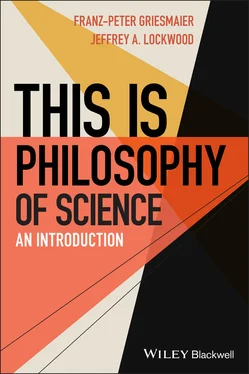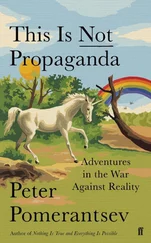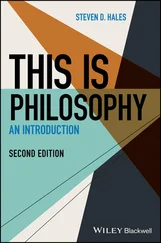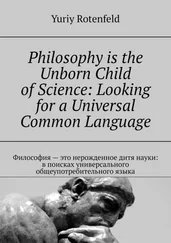98 86
99 87
100 88
101 89
102 90
103 91
104 92
105 93
106 94
107 95
108 96
109 97
110 98
111 99
112 100
113 101
114 102
115 103
116 104
117 105
118 106
119 107
120 108
121 109
122 110
123 111
124 112
125 113
126 114
127 115
128 116
129 117
130 118
131 119
132 120
133 121
134 122
135 123
136 124
137 125
138 126
139 127
140 128
141 129
142 130
143 131
144 132
145 133
146 134
147 135
148 136
149 137
150 138
151 139
152 140
153 141
154 142
155 143
156 144
157 145
158 146
159 147
160 148
161 149
162 150
163 151
164 152
165 153
166 154
167 155
168 156
169 157
170 158
171 159
172 160
173 161
174 162
175 163
176 164
177 165
178 166
179 167
180 168
181 169
182 170
183 171
184 172
185 173
186 174
187 175
188 176
189 177
190 178
191 179
192 180
193 181
194 182
195 183
196 184
197 185
198 186
199 187
200 188
201 189
202 190
203 191
204 192
205 193
206 194
207 195
208 196
209 197
210 198
211 199
212 200
213 201
214 202
215 203
216 204
217 205
218 206
219 207
220 208
221 209
222 210
223 211
224 212
225 213
226 214
227 215
228 216
229 217
230 218
231 219
232 220
233 221
234 222
235 223
236 224
237 225
238 226
239 227
240 228
241 229
242 230
243 231
244 232
245 233
246 234
247 235
248 236
249 237
250 238
251 239
252 240
253 241
254 242
255 243
256 244
257 245
258 246
259 247
260 248
261 249
262 250
263 251
264 252
265 253
266 254
267 255
268 256
269 257
270 258
271 259
272 260
273 261
274 262
275 263
276 264
277 265
278 266
279 267
280 268
281 269
282 270
283 271
284 272
285 273
286 274
287 275
288 276
289 277
290 278
291 279
292 280
293 281
294 282
295 283
296 284
297 285
298 286
299 287
300 288
301 289
302 290
303 291
More in need of philosophy are the sciences where perplexities are greater.
— Carlo Rovelli, Codeveloper of loop quantum gravity
You are an unusual student. We’ d be surprised if 1% of STEM majors (or even most philosophy majors) take a course in the philosophy of science. And this is an unusual book in three ways which we hope will provide a readable college text.
First, most philosophy of science texts are written for philosophy majors. While this book will provide them with a solid foundation, our goal is to provide STEM majors with a relevant book. But why would they seek such a text?
Imagine that there is an opera singer who hits every note, but she has no understanding of the composition. Is she truly a musician or just a performer? In German, a Musiker has a deep understanding of music, while a Musikant merely plays music. Understanding the philosophy of science is necessary to become a scientifiker rather than a scientifikant (these terms don’t really exist but you get the idea).
Second, the coauthors are an odd couple. FPG is an immigrant and first-generation college student whose educational path led him to teach philosophy to hundreds of students. JAL was a faculty member in entomology for nearly 20 years before joining the philosophy department. As such, the authors have been there, with “there” being a classroom where you wonder if you belong and an academic setting where you are an outsider.
This text would’ve been easier to write alone, without the philosopher nitpicking the scientist’s versions of concepts or the scientist revising the philosopher’s accounts of empirical research. We crafted this book together so as to respect the intellect of the student and recognize the unfamiliar practice of thinking about the nature of knowledge and reality.
Third, this book is a kind of chimera structured around two of philosophy’s core disciplines – epistemology and metaphysics (an unconventional framework) – with lots of historical and contemporary examples from the sciences, including the physical (from cosmology to geology), biological (from ecology to medicine), and social (from anthropology to economics). We recognize that the science–philosophy interface requires intriguing case studies (e.g., time travel) to illustrate abstract concepts because if a student is not engaged, then the book is just filling space.
We should also note what is missing from this text. Apart from the need to forgo covering every important view on the topics we chose to treat (such as the kairetic account of explanation), there is also no systematic treatment of ethical, social, religious, and political questions. This absence is not intended to suggest that the cultural context of science is unimportant, but that an exploration of the values–science interface warrants an entire text.
We agree with Carlo Rovelli, theoretical physicist writing for Scientific American, who argued that:
Philosophy provides guidance how research must be done. Not because philosophy can offer a final word about the right methodology of science [but] because the scientists who deny the role of philosophy in the advancement of science … are the ones trapped in the ideology of their time.
But not only science should take account of philosophy. As Rovelli continues: “Just as the best science listens keenly to philosophy, so the best philosophy listens keenly to science.” We hope that this text fosters such mutual respect among students majoring in philosophy and STEM fields.
We thank our department head, colleagues, and families for their encouragement and support in the writing of this book. We especially want to thank the students in FPG’s philosophy of science courses at the University of Wyoming, who provided valuable feedback on earlier versions of the manuscript that eventually morphed into this book. Marissa Koors from Wiley suggested the inclusion of our manuscript in their series This is Philosophy, and the series editor, Steven Hales, got the project going. Our thanks to both of them, as well as to Charlie Hamlyn, who saw the book through to completion. Five anonymous reviewers helped us improve the manuscript by alerting us to several errors and by suggesting discussions of additional topics to enlarge the scope of the text, for which we are grateful. A number of former students and colleagues contributed directly to the content, either by critically evaluating some parts of the manuscript, or by helping us see some of the issues in a different light during fruitful discussions. In particular, our thanks go to Elizabeth Cantalamessa, Conor O’Malley, Bradley Rettler, and Lindsay Rettler. Thanks also to Elizabeth Bell, whose delightful illustrations will help the reader get a better grasp of some of the more abstract topics, and to John Poland for compiling the index.
ABOUT THE COMPANION WEBSITE
A website for This is Philosophy of Science can be accessed at https://thisisphilosoph.wordpress.com. But why would you want to go to a website when you already have a textbook and you have more than enough reading and studying to fill your days? Well, we suggest that the website is a valuable resource when:
Читать дальше












